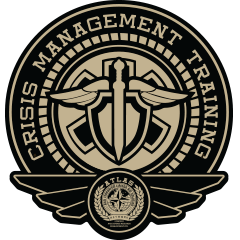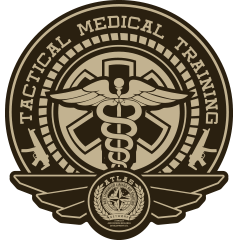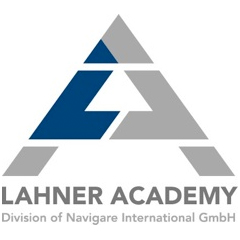

Emergency Crisis Management Course
Terror attacks sites and tools of recent years:
- Rock concert - Automatic weapons and explosion
- Restaurant - Guns
- Metro station - Homemade bomb
- Airport - Homemade bomb
- Fast Train - Machete
- Fireworks at a national holiday - Truck
Recently, even in the minds of the most well-prepared anti-terrorists, the above have only emerged as an emergency scenario. By now, they are unfortunately mementoes of terrorist attacks in European cities. However, not only in a terrorist case can people get in a crisis, just think of a tsunami or an earthquake.
Recent events, terrorist attacks and environmental catastrophes have changed the perceptions of Hungary and the Hungarian citizens about security. The new environment brings new challenges to the Defense Forces, Police and Disaster Management as well. However, the staff of these agencies are, due to their task respectively the training system, continuously prepared for emergencies. In contrast, the civilian population and economic actors were not prepared or are not prepared at all for how to survive a catastrophe or a terrorist attack and how to cooperate with the authorities and help them on their victims after it has occurred.
Our trainings have been developed for the following target groups
I. Child education (6-12 years). Playful training for handling different crises, for example, what to do if:
- we get lost in the city
- we get lost in the forest
- we suffer an accident
- another child suffers an accident
- fire hits our environment
- asking for help, communication in an emergency
- various harassment
- treating fear
- places to cover and hide
II. Youth education (12-18 years)
- In addition to the latter:
- participation in a car accident
- handling of reactions to mass injuries
- online harassment
- sexual assault
- domestic violence
- various acts of street attack
- places to cover and hide
III. Adult education (above 18 years)
- health knowledge
- wounding
- resuscitation techniques
- situation awareness
- open and hidden communication with authorities
- help request and provision
- crisis situations resulting from environmental change (earthquake, lightning strikes, floods)
- attacks in nightclubs, pubs, harassment
- acts of terrorism
- accidents involving mass injuries
- domestic violence
- respectively the recognition of other violent crimes, solving a problem
- attack and self-defense tactics
- FBI Theme (Escape, Hide, Attack)
- Tactical Medical training knowledge
- weapon skills
IV. Governmental and Corporate Structures
- In addition to the above:
- verbal, nonverbal communication
- fire and accident training
- acting according to an evacuation plan
- handling a threat of public safety
- handling and remedying terrorist attacks
- hostage management and remedy
- handling armed conflicts
- handling workplace conflicts
The two-day crisis management course can be divided into theoretical and practical parts. The first day is the transfer of theoretical materials during classroom sessions, the second day the practice of the submitted theory takes place through situational exercises. The case studies to be presented are tailored to the group's working environment. If there are office-building workers involved, we will analyze cases that have occurred in a similar environment. Of course, we also analyze other cases, but we focus on what is probably the most relevant for the particular group.
In the context of psychological influencing factors, we discuss the importance of situational judgment, analyze verbal, non-verbal communication examples that can assist in detecting an emergency, and display body signals that may be a target of attack.
Armament knowledge is primarily a matter of basic information as the purpose of the course is not to train students for the use of different weapons but it is important to know the main features of each type to protect themselves properly in an acute situation.
Understanding the use of shelter and cover, and the difference between them is also important to eliminate the "Hollywood effect" of an average person.
With the demonstration of bare-handed collective defense techniques, we do not intend to educate martial arts, but we also consider it important to make students understand in what cases they can counteract and escape from situations.
A very important part of the training is how to communicate with official bodies or assistants who arrive to the scene first.
The first aid part of the course also includes basic knowledge. Our starting point was that the participants will not have any special equipment in the future either. A simple patient examination, a slightly extended first aid procedure is being presented, for example, with the topic of resuscitation, as these are also useful in real life.
The purpose of the course is to provide practical, guided guidance for crises or emergencies to a wider audience.


Tactical Medical Training
Semmelweis University and the Company have signed a strategic cooperation agreement in order to successfully launch Tactical Medical training in Hungary.
Our goal is to provide health education for Hungarian law enforcement and disaster protection units in order to be able to handle / cater for health-related disasters, catastrophes or unexpected emergencies up to the arrival of healthcare departments.
Legitimacy of a Training
The abolition of various crimes involves the risk of serious injury to innocent citizens and the police force involved in the liquidation. For the implementation of the various operations, special police law rules set priorities that make it impossible to immediately use civilian emergency care providers. Tactical Medical training is a strategic advantage in overcoming the threats to public security in healthcare, which contributes to the even more perfect work of law enforcement and disaster protection agencies.
Areas of Use
Organizing emergency healthcare is a key feature of acute emergency care because of the special situation of the various operations.
- Main application areas:
- Counter-terrorism
- Law enforcement activities
- Demonstrations and uprisings caused by political movements
- Natural and civilizational disasters
- Personal defense
- Securing sports events
Tactical Medicine
Tactical medicine is a set of health care activities that are necessary in relation to police measures and operations, which can be divided into three separate specialist units.
- Personal protective health insurance service
- Operational health care
- Operational psychological care
International Review
The law enforcement medicine is a recent specialty of emergency medical care. In Europe, special law enforcement medicine is still in their infancy, despite the fact that the law enforcement profession has already indicated its need to organize it. By organizing the training, an excellent opportunity would be given to gain leadership in international fora. By expanding the capabilities, such a practical value would enrich the Hungarian Police, by which its international recognition would increase.
Overall, our simulation training is based on careful planning, which incorporates the educational goals by taking into account the needs of the target group, the assigned teaching methodology and tools. In the spirit of the universal approach, we are open to both cooperation with health care providers and healthcare instructors.


Lahner Academy
In the field of training and education, our prominent partner is Lahner Academy.
Our partner is an extremely innovative company with headquarters in Bremen (Germany), its founder is Florian Lahner, the person who built a bridge in educating civilian and law enforcement and counter-crime officials. We offer a wide range of services with the inclusion of our partner to the security sector.
- Main competencies:
- Tactical training and education
- Advisory
- Development (by using training and expert experience)
- Our clients usually come from the following five groups:
- Authority, military
- Protection of persons and property
- Companies
- NGOs
- Civilians
LAHNER ACADEMY is an organization that is operated by educators and experts in the law enforcement industry with the highest level of knowledge and professional experience. This knowledge base and experience are unique. Accordingly, we offer the full spectrum of services and topics to our customers, according to their needs.
Innovative, modern and realistic approaches
We organize trainings, our curriculum is based on real world data, we are working on real mission and operational research with psychological and neurological competence. And most importantly, we are listening to the users.
It is difficult to imagine that one rarely meets the deep-rooted foundations of the training in the practical training environment. While others are still sticking to their obsolete techniques, we use the most innovative and practical methods.
We are highly specialized in panic treatment, especially close to near-body, close conflicts with a distance of zero to five-meters.As a result, we get excellent feedback and use our ideas to educate law enforcement and military as well as special units, and we are trying to help the participants of the child, youth and adult education (both at general and higher education level).
The most up-to-date training
We provide tactical concepts, classroom presentations and practical education for authorities, military and security personnel, companies, civil society organizations and civilians.
In addition to physical training we also provide security lectures. In the field of security, we are focusing on the fight against terrorism, with an emphasis for companies on protecting infrastructure and critical assets. In the fight against terrorism, security, the prevention of kidnapping and the resolution of physical conflicts are of top priority.
Psychological Risk Analysis
We would like to support the increase of the professional level of companies, institutions and businesses with the following services:
Human Audit
Defining specific EU competences. We conduct professional studies to analyze jobs, assess the professional and human security competencies of employees and evaluate performance. We develop the company's human security competence map. We make suggestions for the performance evaluation of individual employees.
Organizational Screening
Within an organizational diagnosis we reveal the inhibitory factors of the organization and make suggestions for increasing efficiency. We consider the requirements of human safety competences as a priority.
The company's human resource hazard and risk assessment
- We conduct hazard analysis for each work area, an employee risk analysis and a security rating.
- We are analyzing vulnerability points to close the competitor's attack points.
- We are developing the company's human security policy, the follow-up of which serves a guaranteed prevention.
- We will prepare the company for the execution of tasks in a crisis situation.
- Implementation of personal inspection tasks.
- We are involved in the tasks defined in the law related to the implementation of anti-corruption law. We define corruption-related jobs and develop a prevention strategy.
Assessment of competency-based psychological eligibility of candidates as well as human risk assessment and safety rating.
n the test procedure, we are working with the state-of-the-art competence testing instruments that meet the specific needs, and perform psychological and human tests. As a result, the behavior of a worker in certain situations can be predicted. The person being tested is classified according to his / her security competence. We are conducting tests for workers with reduced working capacity pursuant to 14/2005. (IX.2) FMM decree.
Additive Risk Assessments
The additional risk - which is not a result of normal business and can be eliminated - is a risk analysis that can be involved in human risk analysis.
Information acquisition and information protection related to business activity.
Continuous information is needed to improve the competitive market position. We organize the company's information protection against attempts by competitors to penetrate. During the security audit, we investigate the vulnerability points and make proposals for their closure. We are developing defensive measures.
Handling of crises
In order to prepare for a crisis, we will develop a crisis management team from those who are qualified to do so. With our ongoing advisory activity, we help to manage the crisis.
Special trainings, further trainings and education
Each special task requires special education, training or coaching. Training is always planned in relation to the task based on preliminary test results.
To detect internal corporate fraud and economic crimes:
We carry out polygraph lie tests. The use of the polygraph is the most cost-effective and reliable way of both testing reliability in the recruitment procedure, and to determine the perpetrator of the possible of the extraordinary events. Mobile Laboratory.

